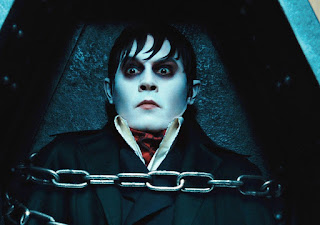Director: Rupert Sanders
★ ★ ★ ★ ☆
 The second Snow White movie of the spring transforms the fairytale into an outstanding fantasy adventure, taking a Lord of the Rings approach in action and scale, and playing it completely straight to fine effect. The basics of the story are still there, as young princess Snow White’s mother dies and her father re-marries the beautiful Ravenna (Charlize Theron). But she kills him and takes over the kingdom, imprisoning Snow and plunging the kingdom into darkness. Theron gives it everything in a fiery performance that kicks the campy Julia Roberts in Mirror Mirror into touch with a properly threatening turn, as she reveals herself to be a soul-sucking demon obsessed with being the fairest of them all. But when she discovers the grown up Snow (Kristen Stewart) is now fairest, the princess escapes and Ravenna dispatches a huntsman (Chris Hemsworth with a thick Scottish brogue) to bring her back. Where it goes from there offers rousing thrills, surprises and an unusually strong emotional core. It looks fantastic, but the sumptuousness is not just a sideshow to the story, instead creating a genuine atmosphere of darkness and oppression, particularly in a first half that’s so good, you keep waiting for it to come apart. Yet it continues to add elements of thematic richness, visual originality (which is tough in this genre) and plain old great action. The addition of the dwarfs is an ingenious touch of casting, even the sometimes dull Stewart has a spark to her, and everything is brought together with verve in one of the best films of its type in an age.
The second Snow White movie of the spring transforms the fairytale into an outstanding fantasy adventure, taking a Lord of the Rings approach in action and scale, and playing it completely straight to fine effect. The basics of the story are still there, as young princess Snow White’s mother dies and her father re-marries the beautiful Ravenna (Charlize Theron). But she kills him and takes over the kingdom, imprisoning Snow and plunging the kingdom into darkness. Theron gives it everything in a fiery performance that kicks the campy Julia Roberts in Mirror Mirror into touch with a properly threatening turn, as she reveals herself to be a soul-sucking demon obsessed with being the fairest of them all. But when she discovers the grown up Snow (Kristen Stewart) is now fairest, the princess escapes and Ravenna dispatches a huntsman (Chris Hemsworth with a thick Scottish brogue) to bring her back. Where it goes from there offers rousing thrills, surprises and an unusually strong emotional core. It looks fantastic, but the sumptuousness is not just a sideshow to the story, instead creating a genuine atmosphere of darkness and oppression, particularly in a first half that’s so good, you keep waiting for it to come apart. Yet it continues to add elements of thematic richness, visual originality (which is tough in this genre) and plain old great action. The addition of the dwarfs is an ingenious touch of casting, even the sometimes dull Stewart has a spark to her, and everything is brought together with verve in one of the best films of its type in an age.












